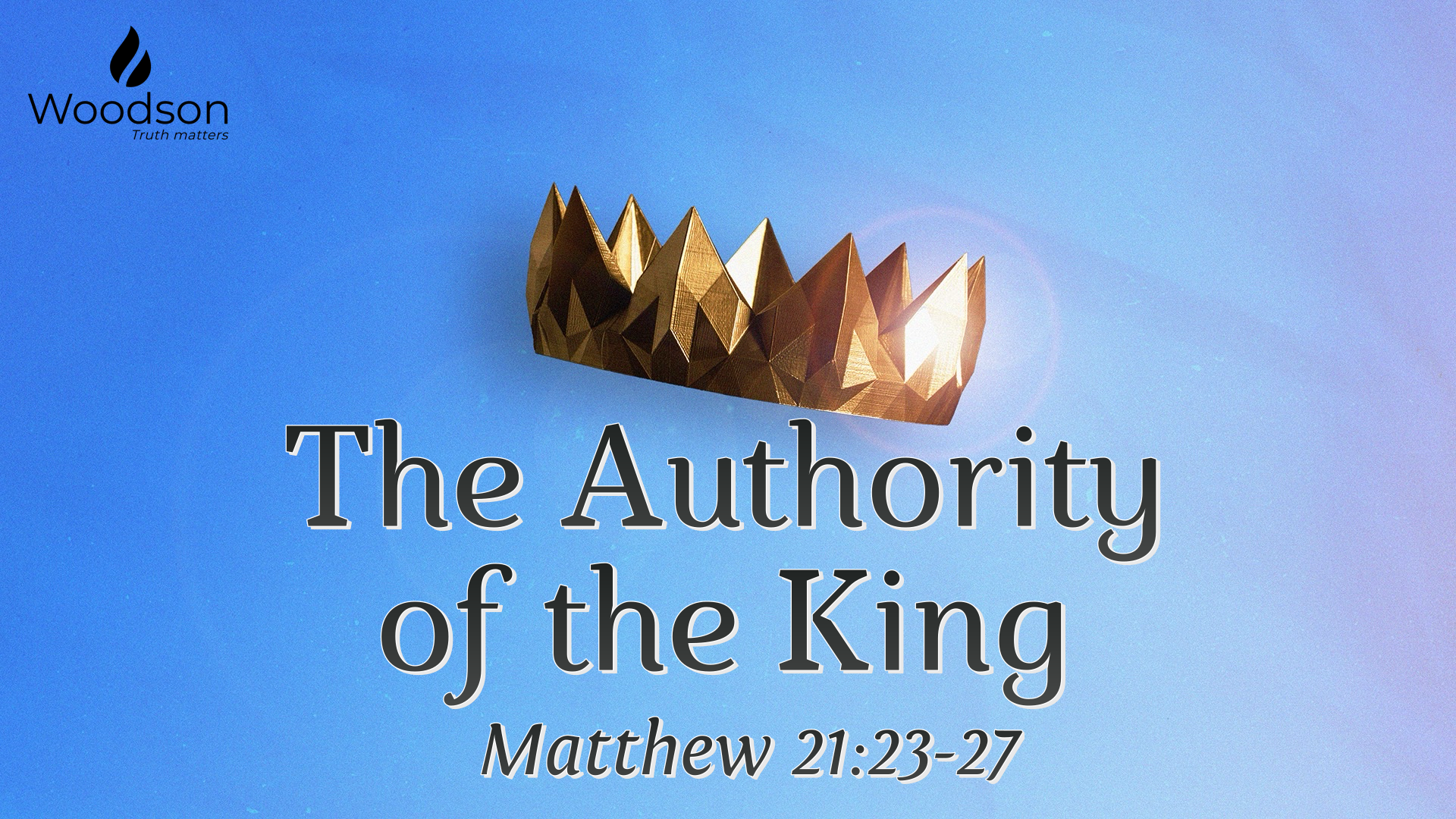Authority of the King
By Whose Authority
In Matthew 21:23-27, Jesus is confronted by the chief priests and elders who question Him about the authority by which He teaches and performs His miraculous works. Rather than responding to their inquiry directly, Jesus cleverly turns the question back on them by asking about the origin of John the Baptist’s baptism—whether it was given by divine authority “from heaven” or was merely a human tradition “from men.” The religious leaders find themselves trapped in a difficult position. If they claim it was “from heaven,” Jesus will challenge their rejection of John’s ministry; if they say it was “from men,” they risk angering the people who revered John as a prophet. Faced with this dilemma, they answer hesitantly, “We do not know,” revealing their unwillingness to stand firm in the truth. Consequently, Jesus chooses not to reveal the source of His own authority. This passage clearly underscores the confrontational nature of Jesus' ministry toward the established religious leaders and exposes their resistance to recognizing the work of God manifest through Him.
(ai summarized)
“And when he entered the temple, the chief priests and the elders of the people came up to him as he was teaching, and said, “By what authority are you doing these things, and who gave you this authority?” Jesus answered them, “I also will ask you one question, and if you tell me the answer, then I also will tell you by what authority I do these things. The baptism of John, from where did it come? From heaven or from man?” And they discussed it among themselves, saying, “If we say, ‘From heaven,’ he will say to us, ‘Why then did you not believe him?’ But if we say, ‘From man,’ we are afraid of the crowd, for they all hold that John was a prophet.” So they answered Jesus, “We do not know.” And he said to them, “Neither will I tell you by what authority I do these things.”

